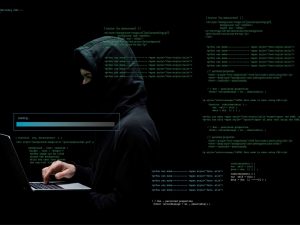The dark web, a part of the internet accessible through special software like Tor, is shrouded in mystery and intrigue. Within the dark web is a notable resource known as the Hidden Wiki. This article explores the origin and evolution of the Hidden Wiki, shedding light on its emergence, purpose, and role within the dark web community. We can better understand how this influential platform has evolved by delving into its history.
The Emergence of the Hidden Wiki
Early Dark Web
The dark web originated due to government initiatives seeking to protect online communications and ensure user privacy. Over time, it evolved into a realm that hosted both legal and illegal activities.
Creation of Hidden Services
Hidden services, websites accessible only through the Tor network, emerged to maintain anonymity and facilitate secure communication. The Hidden Wiki became an integral part of this ecosystem.
The First Hidden Wiki
The exact origins of the first Hidden Wiki are unclear, but it is believed to have emerged in the mid-2000s. It served as a directory of hidden services, providing links to various websites within the dark web.
Purpose and Features of the Hidden Wiki
Centralized Directory
The Hidden Wiki operates as a centralized directory of hidden services, categorizing them into different sections such as marketplaces, forums, information resources, and more.
User-Generated Content
Users of the Hidden Wiki contribute to its growth and relevance by submitting and updating links to hidden services, creating a dynamic and ever-evolving platform.
Navigation and Exploration
The Hidden Wiki is a starting point for users seeking to explore the dark web. It provides a gateway to hidden services, allowing users to discover new sites and communities.
Information and Collaboration
Besides listing services, the Hidden Wiki may include articles, tutorials, and discussions on various topics, fostering information sharing and collaboration within the dark web community.
Evolution and Controversies
Growth and Expansion
Over time, the Hidden Wiki expanded in size and popularity, reflecting the growth of the dark web itself. New sections and categories were added to accommodate the diverse range of hidden services.
Content Quality and Verification Challenges
The user-generated nature of the Hidden Wiki presented challenges in maintaining the accuracy and reliability of the listed services. Inaccurate or malicious links were a persistent issue.
Illicit Activities and Law Enforcement
The Hidden Wiki, like other parts of the dark web, became associated with illicit activities, including illegal marketplaces and forums. Law enforcement agencies have made efforts to monitor and combat such activities.
Takedowns and Mirrors
Due to the illegal content hosted on the Hidden Wiki, it has faced takedowns and disruptions by authorities. However, mirrors and alternative versions of the Hidden Wiki have emerged, ensuring its persistence.
Safety, Precautions, and Ethical Considerations
Risks and Security
Navigating the Hidden Wiki and the dark web comes with inherent risks, including exposure to illegal content, malware, and potential surveillance. Users must exercise caution and employ robust security measures.
Ethical Boundaries
While the Hidden Wiki offers a wealth of information and access to various services, users must understand and respect the ethical boundaries. Engaging in illegal activities or supporting harmful content goes against the responsible use of the platform.
Privacy and Anonymity
The Hidden Wiki was built upon the principles of privacy and anonymity. Users must take necessary precautions, such as utilizing the Tor network and employing encryption tools, to protect their identities and maintain their privacy.
Conclusion
The Hidden Wiki has played a significant role in the dark web community, serving as a central directory and gateway to hidden services. Its evolution reflects the growth and challenges of the dark web ecosystem. While controversies and legal issues have emerged, the Hidden Wiki persists through mirrors and alternative versions.
Navigating the Hidden Wiki and the dark web requires awareness of risks, adherence to ethical boundaries, and a commitment to maintaining privacy and security. As the dark web continues to evolve, the role and significance of the Hidden Wiki are likely to adapt and shape the landscape of this mysterious online realm.
